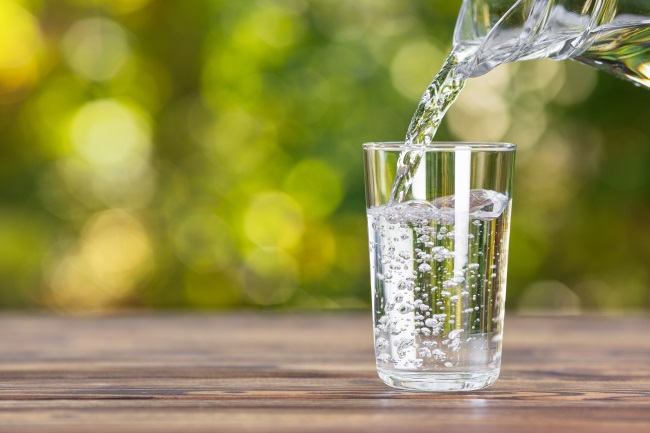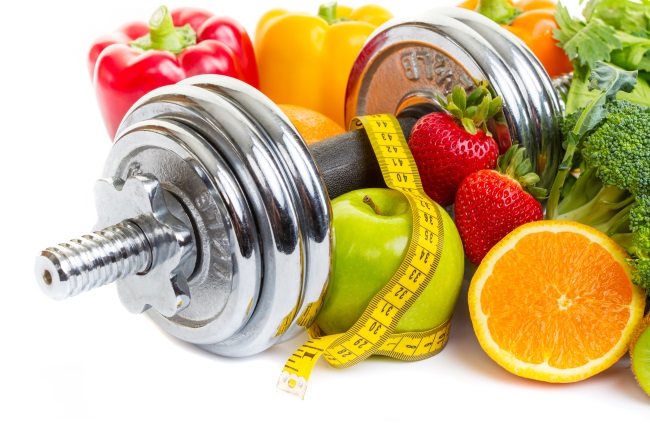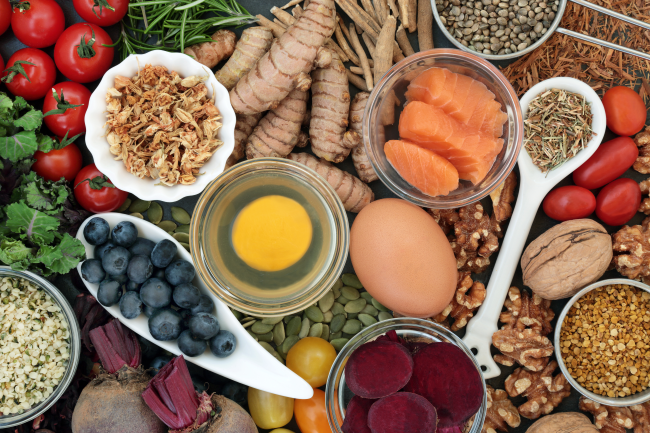In our latest Nutrition and exercise article dietician Sophie Bruno gives advice on what to eat before, during and after workouts.
That period of the year is upon us yet again. Spring is traditionally a time to take stock of how you look; especially if you have been making the most of comfort food over the winter period. With all the calories likely to have stacked up, exercising to shed some of those extra kilos you may have gained has never been so appealing.
Perhaps you have set yourself some different types of goals to achieve when the colder months are over. A charity run for fun? Training for your first half marathon? Or maybe you are simply aiming at improving your stamina and performance. No matter what your goal is nutrition plays a pivotal role in supporting the training and competitive demands of sport. Good food choices ensure that you have adequate energy to drive performance and aid recovery.
There are no strict rules or dietary plan that you must adhere to. However, there are some nutritional strategies and tips that may optimise performance.
Before: Fuel up
Carbohydrates are vital for performance during sport; muscles rely on carbohydrate as their main source of fuel. Carbohydrate is stored in muscles as glycogen. As the body’s stores of glycogen are limited, topping up the stores each day is key. The amount you require depends on your training programme and dietary goals. In general, the more intense the training programme the higher the amount of carbohydrates your diet should contain. The consequences of carbohydrate poor diets encompass energy deficits during exercise, early fatigue, loss of concentration and delayed recovery. For your pre-workout meal, combining carbohydrate with protein and fat will provide sustained energy and maximum performance during a training session.
Timing of a pre-workout meal
The timing of your food before a workout can make a big difference to how you feel and will have an impact on your performance. For most workouts, you should aim to eat 2-4 hours before exercising. If you have no time for a meal then have a smaller, healthy snack up to 30 minutes before training.
After: Refuel your tank
The most effective refuelling to kick-start recovery occurs within 0-30 minutes immediately after exercise; for a rapid recovery, both carbohydrate and protein should feature in your post-exercise snack or meal. The combination of both nutrients promotes faster muscle repair and greater muscle growth, replenishes glycogen stores and reduces post-exercise muscle soreness. If you only focus on high protein intake without an adequate supply of carbohydrate, the protein will be used for energy purposes instead of being used to build muscle. Aim to consume 1g carbohydrate per kg body weight following the exercise.
Protein for power
Furthermore, the post-workout meal or snack should also comprise protein. Protein is required for building and repairing muscle and plays an important role in how the body responds to exercise. One of the biggest myths is that consuming large amounts of protein equates to large biceps. Muscle is gained through a combination of resistance training and a diet that contains adequate energy and carbohydrate.
The ideal post-exercise protein dose to trigger maximum muscle protein synthesis (MPS) is 15-25g (or about 0.25g per kilogram of body weight). Exceeding this amount will not increase MPS for most people. Eating less may produce smaller gains. Leucine, a branched chain amino acid and component of protein, is the key trigger that stimulates MPS as well as promoting muscle recovery after exercise. Milk, whey, casein, egg, meat, poultry and fish are rich sources.
As an example, 500ml milk with a banana is a healthy option that delivers carbohydrate and protein in amounts that optimise recovery as well as providing other nutritional needs. Milk will provide the protein needed to maximise muscle adaptation after exercise. It also contains the optimal amount of leucine that promotes muscle building after exercise. You can also obtain 20g protein from three eggs or 250g Greek yoghurt or 25g whey powder or ricotta, honey and banana on toast.
As muscle recovery continues for several hours − perhaps up to 24 hours − you should continue consuming protein at regular intervals throughout the day; aim for 15-25g of protein at each meal.
 Hydration
Hydration
Maintaining adequate hydration is essential for physical and mental performance. It is paramount to start each exercise session well hydrated, to take on board appropriate fluids during the workout and restore hydration levels as soon as possible afterwards to optimise the recovery process.
For low-intensity exercise lasting for a short time, water is a good choice for rehydration. Water is affordable and convenient for most recreational exercisers. Sports drinks containing electrolytes are unnecessary unless you are training for over an hour. For moderate to high intensity and endurance sports lasting longer than an hour a drink which contains carbohydrate and electrolytes, such as milk or a commercial isotonic sports drink, is generally more effective than water in enhancing performance. These drinks contain carbohydrate to help delay fatigue by delivering glucose to the muscles and electrolytes to replace sodium lost in sweat. It is important to note that some studies show that milk rehydrates you more effectively than isotonic sports drinks.
Lastly, the sports world is overflowing with bars, pills, powders and specialised foods that all pledge fitness or performance enhancements. They are particularly popular in the athletic as well as recreational sporting domain. Recreational exercisers do not normally require supplements to complement their diet.
Focusing on achieving a healthy, balanced diet with adequate hydration will supply the necessary nutrients and energy for sport and achieving fitness goals.








